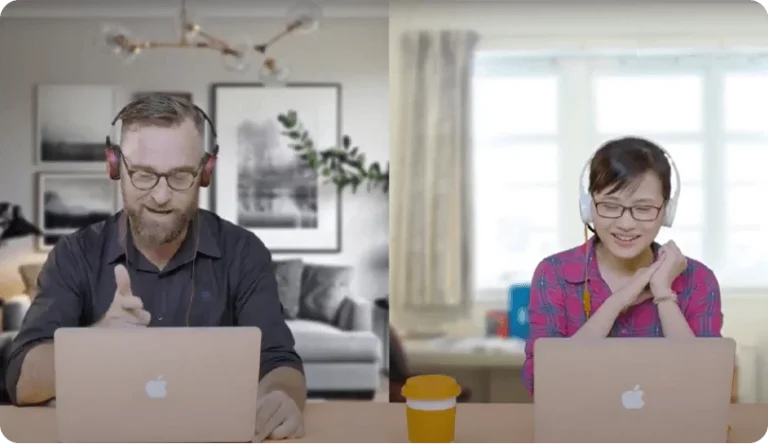Teaching Children in the 4.0 Era: How to Make Your Child Study in a Village School But Still Be on Par with a VIP School?
For a long time, we have been familiar with the notion that children in big cities enjoy better educational conditions, thereby developing more comprehensively, being more confident and having more advantages.
But is this concept still relevant in today’s technologically advanced era?
As the economic conditions of each family become more and more developed, the top concern of parents is how their children can access top education, regardless of geographical distance.
Is there a way for all children, from peaceful villages to bustling urban areas, to have access to and develop comprehensively so that our children are fully equipped with the knowledge and skills to confidently integrate into the world?
Please follow what I am about to share below, with the hope that they will bring you new perspectives, promote changes in perspective and help you make the best decisions for your child’s long-term journey.
You will find that, even without the opportunity to study in prestigious schools, your child can still receive a quality, complete and comprehensive education, not inferior to anyone else.
The secret is at the end of the article, please follow and have your own thoughts.
Choosing a school for your child – Parents’ worries!
Children are the priceless treasure of their parents, every parent wants to do everything best for their children.
From preschool age to when children start attending secondary school, in rural areas and provinces, there are still few, but if in the city, the capital, you will often hear parents share things like:
– I’m applying for my son to school A and school B.
– I’m having to worry about getting my child into school C. It costs a bit, but it’s a national standard school, a bit far from home, but the good thing is that my child studies well, all the teachers are good…
– Next year my child will be in middle school, I am so worried about finding a school for him, I want to apply to school D but it is out of my area, it is crowded now so it is difficult, I have been asking for help but have not been able to get in yet… And my child is studying at school E, but just hearing about it, I know that the family must be very well-off to be able to send their child to study there.
In big cities there will be more choices, of course every parent wants to choose for their children the school with the best possible conditions within their ability.
Even in the capital, if possible, parents are willing to wait all night, lining up in long lines to apply for their children to study at prestigious, high-quality schools…
But because of the high population density, the learning conditions of children at public schools are limited when the class size is large, the learning space is limited, and children even have to take turns taking days off during the week…
Typically, recently, parents even had to draw lots to reserve places for their children to attend public preschools in a district in Hanoi.
At the provincial level and below, the mentality of choosing schools and aiming for key schools and prestigious schools is also very normal, but the level of competition is much lower.
In most of the lower-level localities, choosing a school is not a concern for parents, simply because their children’s learning path in their locality is pre-programmed from kindergarten to high school, so they don’t have to compete with anyone and the classrooms are not crowded.

But if you have the above options, will you try every way, with every relationship and ability possible to find your child a place at a prestigious top school?
Probably YES!
Simply because, every parent wants to do the best they can for their children.
Furthermore, school is a key factor that plays a role in creating a solid foundation and directly affects the child’s long-term development.
But when my current conditions are like that or I’m in a locality where the learning path is pre-programmed, will my child just be average?
No! Definitely No.
Please read the title of the article I mentioned above again.
How can a village school be equal to a VIP school?
First I will talk about Vip school.
Simply put, VIP schools are schools that allow students to study at specialized schools, selective classes, prestigious schools in big cities, top schools in the province, as well as private and international schools with higher and more expensive tuition fees than normal.
You will ask: “Oh, we are including international schools in here? Is that too lame?”
I would like to answer that: The international market is a super VIP market, just list it all, why not!
Depending on each level and family conditions, children attend schools with good to excellent facilities, teaching equipment, and teacher quality, aiming at their comprehensive development.
VIP schools are equipped with spacious, modern facilities with advanced teaching and learning equipment such as science labs, computer rooms, art and multi-purpose sports rooms, even swimming pools and theaters (for international schools).
There are advanced teaching methods directly instructed by a team of high-quality teachers, focusing on developing critical thinking, creativity and especially life skills for students.
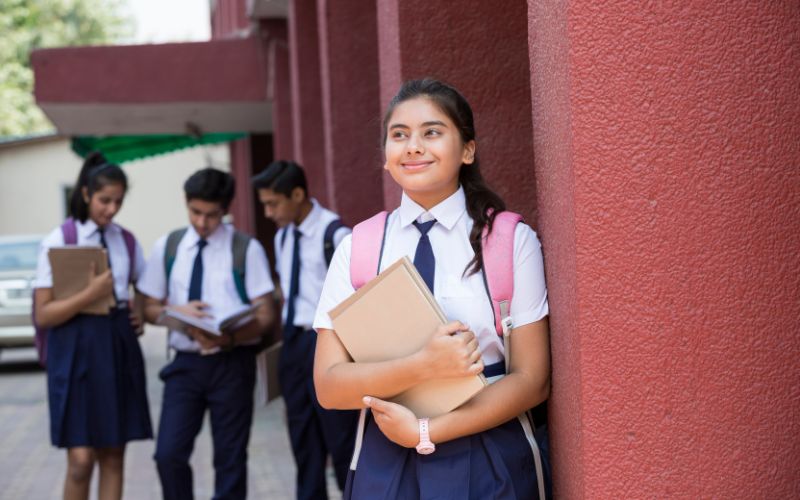
Dynamic learning environment with many extracurricular activities with opportunities to participate in high-level academic competitions, high technology, not to mention the international environment, opportunities for international exchange…
What about the village school?
What is a village school?…
We were born and raised in villages and small towns in localities and districts, places where children already have an educational path from preschool to high school, following the state’s public education model.
Nowadays, schools have been developed thanks to investment in teaching equipment, teacher quality, and teaching content has been reformed many times, but there are still certain limitations.
But you say that the quality of a village school is equal to that of a VIP school?
Yes, I still insist!
Is it true that every time we watch TV shows about talent competitions, speech competitions, and presentations for children where the children are the young MCs, the faces shine with confidence… adults often comment on “other people’s children” like this:
– City children are different, they are invested in education from a young age…
– Wow, this group of young people has participated in all these programs and clubs since they were young, so of course they are proficient.
– They are exposed to civilization from a young age, their parents have plenty of money, so of course they are fluent…
What about when you come back and comment on “your own child”?
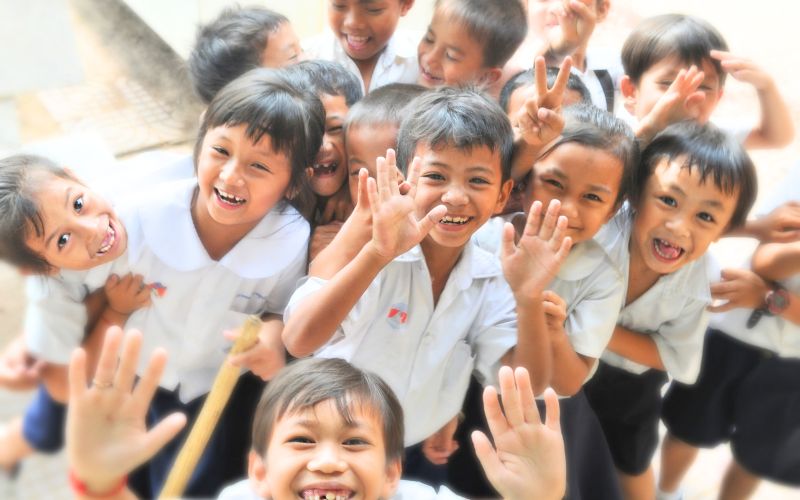
Do you often have stereotyped comments about your children based on different opinions from each other, but if you put them on the scale of comparison, your children are no better than other people’s children?
At first glance, it seems almost obvious that better learning conditions and environment must lead to better results.
But…
Let’s stop here for a moment to think!
Think about it, what is the longest-lasting and most influential environment for a person, where winning or losing determines the quality of life of each of us?
Is it a school?
No, that’s life.
“The school of life” is the biggest school, where every day, every hour we learn valuable lessons.
Unlike school with its pre-set curriculum and lectures, the “school of life” teaches us through experience, through challenges and even through successes.
What matters is not how much you learn from books, but how you apply that knowledge and skills in life to overcome challenges, achieve goals and live a meaningful life.
In the “school of life”, there is no teacher standing in front of the blackboard and teaching lessons every day, but each of us has the opportunity to become a teacher for ourselves and for others.
Every decision, every action you take is a lesson.
Every relationship, from friends, family, colleagues, brings knowledge and insight into life and people.
So, should what we discuss here just stop at the preliminary external assessments and the results achieved in the school stage or should we consider from the perspective of what knowledge, skills, and factors our children need to develop to help them be steadfast, confident, and successful in the next important stage?
Yes, the big picture that serves as the long-term strategy here must be based on the long-term view: The school of life, not school.
Trust me, when you combine this long-term view with an analysis of the current situation, what I will share next will not only open up new perspectives but also help you make the most informed and appropriate decisions in the current context for your children.
This ensures that your child will be fully prepared, second to none, ready for all challenges and opportunities ahead.
Let’s look at the examples of great success, the self-made billionaires of our country and look out into the world, how many of them come from poor families, extremely difficult conditions, even orphans with no place to rely on… are their conditions even more difficult than yours now?
Is it possible that we have set up pre-set assumptions and iterative journeys for our children: Go to school, study the full curriculum, have good results, try to let them take extra classes to get high scores and good results for each level, otherwise try to move up a grade or skip a grade to meet the requirements.
Going to university and passing it is ideal, so wonderful, parents will try to stay home and work hard for their children to complete their studies well, and after graduating, they will have a job to keep warm.
If you fail, stop studying at vocational school. Consider what talents you have or what the local market is hot and in demand for, then invest in learning that profession.
In the end, just trying to be self-sufficient is good enough!
Is it a pre-existing journey based on default visions from the past, that is, from the time when our parents were the same?
And now, if you just think differently, everything will change completely!
There is a general formula for all: Everything changes when we change, change your thoughts and beliefs from within yourself.
You just need to add a simple mantra that any believing parent can say to their child:
– Honey, you can do it, you can do it and do it very well!
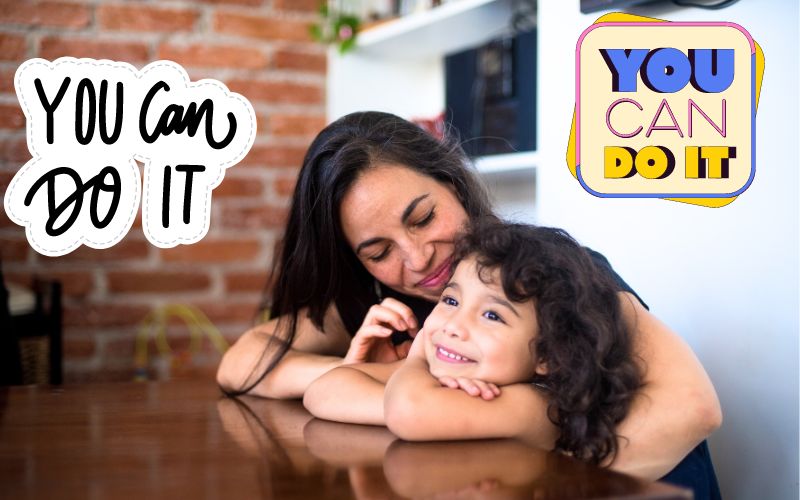
The first simple step: Affirm that your child will excel and be no less than anyone else.
Yes, the difference between no and yes is just whether you do it enough.
Instead of scolding, nagging, blaming your child, saying harsh and stressful words to your child, if you just change, if you change yourself, the whole situation will change completely.
Teaching and interacting with children is also a process of learning and training for yourself.
That journey will be extremely interesting and if you persevere, have the right perspective to have a suitable path for your child, you will have unexpectedly sweet results.
The difference between Village school and VIP school
Now that the trust is there, what’s the next step?
Let’s analyze the differences between the two learning environments to make the following comments.
| Comparison content | Public School | Grade A/Private School |
| Curriculum | According to the national education program, focusing on basic knowledge. | Regularly updated, can combine national curriculum with additional, advanced courses. |
| Facilities | Qualified for basic teaching and learning. | Often invest more in modern facilities and equipment. |
| Teaching Methods | Qualified for basic teaching and learning. | Often invest more in modern facilities and equipment. |
| Teaching Methods |
Tradition, despite its improvements, is still heavily theoretical. Little focus on critical thinking |
Can apply new teaching methods, focus on practice, critical thinking. |
| Soft Skills |
It is taught but not emphasized. Focus mainly on academic knowledge, less on practical life skills. Little attention is paid to emotional education. |
There are often soft skills development programs and extracurricular activities. The curriculum includes life skills and self-control education, providing emotional education and emotional processing skills. Focus on comprehensive development of students, including communication skills, teamwork, problem solving, and time management. |
|
Study the basic curriculum. Focus on memorization, vocabulary, grammar, learning to recite, good test scores. If only the curriculum content is applied, students cannot communicate. |
Usually focuses on foreign languages, may have advanced English program or add a second foreign language. Students communicate fluently in English from an early age and use English in activities, from academic to extracurricular. |
|
| Access to Technology | Limited use of technology in education. | Integrating technology in teaching and learning. Children have early access to technology and are proficient in using applications to serve their learning and participating in high-tech academic projects. |
This is a summary of the differences that detail the sequence of activities that make a difference in the access and experience of education at different types of schools.
But, let me ask you again, with my many years of experience from when I was still in school until now, as a parent.
How much of the knowledge you learn in school can you apply to real life, where you live and learn?
What is the difference in facilities, teaching methods, and curriculum content that makes Vip school superior to village schools as analyzed above?
Is it true that all of these aim to equip students with knowledge, soft skills, creativity, a passion for continuous discovery, critical thinking and a positive, multi-dimensional outlook, a spirit of learning… which are the most important provisions for them in their next journey?
Can you equip your children with those skills?
Exactly, in general those are the core skills.
Step Two: Equip Your Child with Core Skills
Regardless of the learning environment, equipping children with core skills is the key issue, so that children are like seeds that are incubated with necessary nutrients, and can develop strongly no matter what environment they live in.
Experts have pointed out that the following factors are necessary for the comprehensive development of children:
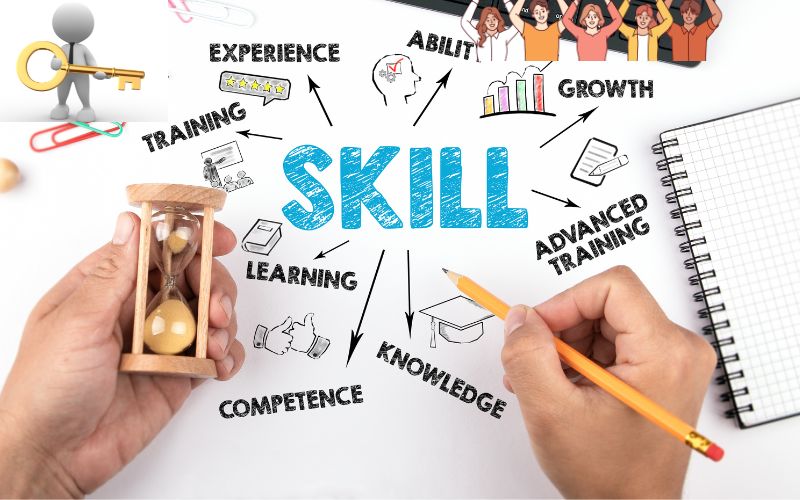
The essence of child education is to give children a core set of skills.
1. A heart that knows how to love and is full of compassion.
I know how to care and pay attention to other people’s feelings and am willing to help people around me without expecting anything in return.
Understanding and practicing gratitude will give you a full heart and always be joyful and happy.
2. Confident communication and public speaking skills.
The ability to express one’s opinions, feelings, and thoughts confidently and without fear.
You can confidently speak in front of a class or crowd.
This is a key skill for success in personal and professional life, involving listening and understanding others.
3. Sense of independence and self-responsibility
It is the child’s ability to take self-managing actions and be aware of the consequences of his or her actions.
4. Have the spirit of self-study and eagerness to learn
The spirit of learning is the key to making a difference, will help you achieve any result you want and is the secret to success of any businessman or billionaire.
Self-study ability will help children learn by themselves and love to learn knowledge by researching through books and magazines.
Your child will reduce or even eliminate the need for extra classes to excel.
This skill is the key factor to help children have the remaining skills.
5. You are equipped with survival skills.
These are skills that help children protect themselves and survive in harsh environments or difficult situations.
With the above 5 factors, the family will play the role of both a teacher teaching the theory for the child to understand, and also creating a practical environment to help the child practice fluently, turn theory into action and create their own personality.
Specifically how to do it, I certainly do not need to explain in detail because I know for sure, when you read this, you have a deep interest in your child’s development.
You are one of the wisest parents and already have ideas and action plans in mind.
But…! Is that all?
What is the most crucial skill that helps bridge the gap between village schools and VIP schools?
There is one important skill that not all parents can teach their children.
This skill is also the biggest difference between students of village schools and VIP schools.
Do you know what that is?
Yes, that’s it: Use English fluently.

In today’s era of global integration, English is no longer a need but a mandatory requirement.
The essential preparation for children entering life after finishing high school is English so that they can confidently integrate into unlimited learning and career opportunities.
This is the key skill that unlocks the gap between the two learning environments we are discussing here.
In provinces and localities, parents may say to each other:
– Oh, English is very important now, without it you will die.
– English is almost mandatory now, going out without knowing English is like being illiterate….
And we invest in our children to learn English, but the percentage of parents who let their children learn English according to the true nature of the language is not much.
The nature of language is communication, English or Vietnamese or any other language on this earth also serves the purpose of communication.
So that children can confidently communicate in English.
It’s not about learning English just to keep up with other people’s children or to solve the worry that your child won’t know any words and will get bad grades on exams, so you just diligently study grammar and vocabulary to become a master of scores or achievements.
Learning English is to be able to use it as a second language.
Step three: Help your child communicate fluently in English.
In the past, when it came to English, only children in the city had the opportunity to access it because they studied directly at centers.
Nowadays, with the development of technology, through the internet with online learning model, no matter where you are, children can access foreign languages, plus guidance on additional methods according to the educational roadmap so that children can absorb English naturally without any pressure like the way they learned Vietnamese.
Yes, I say again that your child can speak English as fast as Vietnamese.
English is simply a language, not a high-level academic subject. Any child who can speak Vietnamese can speak English well.
That’s the message we repeat over and over again at Global link language.
Our mission is to bring English closer to the Vietnamese community, especially the future young generation, our infinite love.
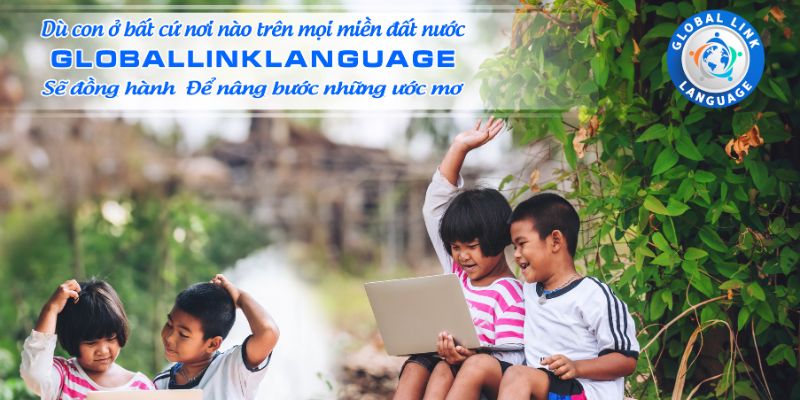
We want to share, motivate and create confidence: Wherever you are, you have the opportunity to confidently become a global citizen.
Every child is a genius waiting to be discovered, the problem is how much opportunity they are given to develop.
When you love foreign languages from a young age and combine it with a love of learning, the higher the level, the lower the cost of learning English, even zero.
With the desire to motivate, create confidence and help children overcome shyness and anxiety with English, Global Link Language offers a free 1/2 month trial program.
This program is designed to bring English closer to the Vietnamese community, helping children approach the language in a natural way. With enthusiasm and active learning, children will gradually feel more confident and love learning English according to the language process.
Or you can choose any center or teacher for your child, as long as it is suitable for your child to ensure that your child has access to foreign languages, broadens their horizons and knowledge from a young age so that your child believes that, no matter where they are, they can see the world from an equal position with all other children, without any inferiority.
Let’s apply the formula for success: Anything is possible, it’s all about the method .
Ask yourself valuable questions to come up with your own breakthrough actions.
The question now is: Other people’s children can! But our children, why not?
Thus, depending on each family’s conditions, children can access different educational models, but in general, the difference here lies in the level of understanding, knowing and practicing the core skills that I mentioned above repeatedly, like preparing the necessary nutrients to help seeds grow in any environment and conditions.
and most importantly, children integrate into global development through mastering a foreign language from an early age – English.


